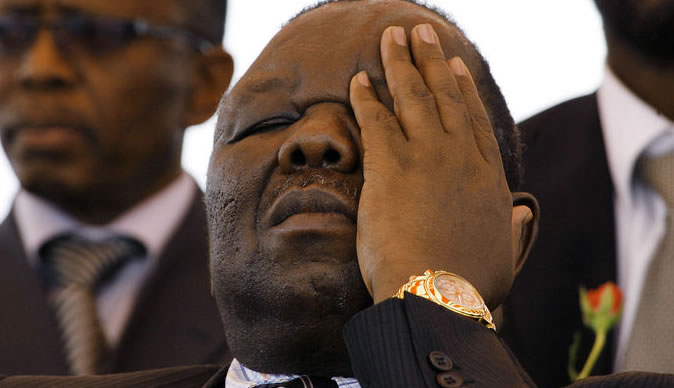Demonising Zimra at our own peril

Benny Tsododo
As a struggling worker who has a chunk of his measly earnings monthly taken up by the Zimbabwe Revenue Authority (Zimra), it is tempting to support any criticism directed at the tax body, but as a discerning citizen, I find the current fever-pitched attack on the tax body a little bit overboard and tantamount to abetting the sanctions imposed on the country.
Of late, Zimra has come under unrelenting attacks for its latest swoop on private companies and state-linked institutions that are failing to meet their tax obligations.
A lot of blame has been heaped on the tax authority for its “heavy-handed approach” and trying to “kill the goose that lays the golden egg”.
The argument proffered is that Zimra’s latest blitz on the companies was likely to hasten their closure.
Those who hate Zimra because it deducts their earnings were quick to unwittingly jump into the fray of lampooning the tax body for its supposedly counterproductive raid on the companies.
Nonetheless, they are oblivious to the fact that behind the anti-Zimra campaign could be regime change forces with ill-driven plans to stifle revenue collection in Zimbabwe.
After imposing illegal economic sanctions on Zimbabwe, the anti-establishment forces sustained these embargoes by coming up with a number of measures to cut off and discourage foreign budgetary support to Zimbabwe. These measures resulted in Zimbabwe being denied financial support by international lenders, leaving the country to try and make do with its own local initiatives.
The local initiatives included plans to raise funds from the country’s abundant natural resources and consolidation of the available local revenue streams. It is in this regard that Zimbabwe, through Zimra, has been trying to maximise on its revenue collection in order to fund its wage bill and other developmental plans.
This explains the marked increase on Zimra’s door-to-door compliance checks, audit measures and even the mulling of plans to widen its tax net in order to tap into potential revenue from the informal sector.
These measures inevitably caught the eyes of the anti-establishment forces who realised that revenue from taxes has become the mainstay of Zimbabwe’s economy. In a way, robust revenue collection measures by Zimra have become a bulwark against the ruinous effects of sanctions hence the detractors could not stomach this.
So, in their convoluted drive to bring the battered economy to its knees, the detractors used their world renowned agenda setting expertise to demonise operations by Zimra in a bid to breed a non-tax paying culture among Zimbabweans that would hamstring the economy.
I say this because this is not the first time that the anti-establishment forces have tried to attack the pillars of Zimbabwe’s economy. Not so long ago, the same forces, after realising that huge diamond deposits discovered at Chiadzwa were likely to be a lifeline to the country’s sanctions-hit economy, hatched a plan to block trade in the gems claiming they were “blood diamonds”.
These were the days when some civil society groups were specifically formed and funded to spearhead the campaign to blacklist the Chiadzwa gems. Relatively unknown people like Farai Maguwu and Shamiso Mtisi and their respective organisations, the Centre for Research and Development (CRD) and the Zimbabwe Environmental Law Association (ZELA), became household names in the diamond story for their scintillating yet disdainful efforts to prove that Chiadzwa diamonds were “blood-stained”.
Representations were even made at the United Nations to have the Chiadzwa diamonds blacklisted. Similar efforts were also persistently and graphically presented at the Kimberly Process Certification Scheme (KPCS) to bar several diamond firms operating at Chiadzwa from trading their gems on the global market.
Groups such as Canada Africa Partnership, Rappaport and Human Rights Watch brewed volumes of reports with unfounded claims that there were human rights abuses at the Chiadzwa diamond fields. This was all in an effort to block the trade in Chiadzwa diamonds, which were then touted to be the panacea to Zimbabwe’s economic ills.
The detractors also targeted the country’s tourism sector. Because of a congenial presence of a wide array of tourist attractions coupled with an unchallenged peaceful political climate, tourists have been flocking to Zimbabwe, bringing in the much-needed forex required to support the economy
Recognising the anti-sanctions matrix in this, the anti-establishment forces tried to discourage tourists from visiting Zimbabwe by issuing travel warnings saying the country was politically unsafe.
They even went all out in a vain attempt to sabotage Zimbabwe’s chance to co-host with Zambia the 20th United Nations World Tourism Organisation (UNWTO) General Assembly in 2013. Several western countries boycotted the event and encouraged other nations to do the same.
So it is not surprising that this time around, the same forces are targeting Zimra because of its current status as the pillar of the economy and a sanctions buster. To their glee and to the country’s sadness, Zimra has been reporting its failure to meet its revenue targets for months.
Only last week, Zimra Commissioner General, Gershem Pasi, reported that the tax authority missed its revenue target for the first half of 2014 to June 1, 2014 by one percent. Against a target of $1.74 billion, the authority managed to collect $1.72 billion.
This is sweet news to the country’s detractors and sad news for the country’s economic wellbeing. They know that if Zimra is brought to its knees, the country’s economy will follow suit.
Unfortunately, our own imprudent criticism of Zimra operations makes us complicit in efforts to scuttle revenue collection by the tax authority.
Our actions could exacerbate government’s challenges in paying its workers and implementing its developmental projects. They are self-defeating actions that are abetting the illegal sanctions.
We should not continue to denounce Zimra for carrying out its constitutional mandate to collect revenue for the country. We should be wary of shooting ourselves in the foot by unwittingly maligning Zimra at the behest of the country’s detractors.
That is why as a taxed worker, I did not find it amusing to see this unremitting campaign to vilify the operations of the tax body.












Comments